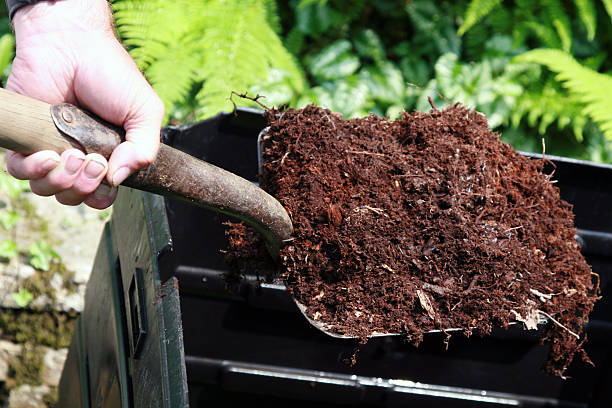

You must have often heard that organic fertilizer is very beneficial for our plants. Many manures or organic fertilizers are used in organic gardening, but the importance of organic manure for plants is paramount. The use of organic fertilizer has many benefits for the soil of the garden and the plants in the pot or grow bag, and it is completely eco-friendly and does not harm the plants. You can easily prepare organic fertilizers at your home. In this article, you will learn about how organic manure is prepared. What is organic manure, what are the uses and benefits of organic manure, and to get information about how to make organic manure for plants at home, read the complete article.
Table of Contents
The manure prepared by the decomposition of animal and bird excreta, body residues, wastes from industries, and the leaves and branches of plants, etc., is called organic manure. Organic fertilizer is also known as bio fertilizer or organic manure.
Following are the major types of organic fertilizers used in organic gardening or home gardening, such as:
All the above-mentioned fertilizers are the main types of organic manure, which you can prepare very easily for plants. Let us know how to make organic manure for plants at home and how to make compost.
Dung manure is prepared by mixing the excreta and urine of animals like cows, buffalo, goats,s, etc. and their fodder, etc. The amount of 0.5-1.5% nitrogen, 0.4-0.8% phosphorus and 0.5-1.9% potash is found in cow dung. To make cow dung manure, collect animal dung, excreta, and fodder in a pit at least 8-10 inches deep or larger and cover it with soil. Now in about 6 months, the compost made by you will be ready. You can use cow dung manure while preparing the soil for plant growth or can be used in potting soil at any time during the growth of the plant.
Manure made by rotting different types of plant residues such as dry stalks, leaves, branches, etc. in the pit is called compost manure, it contains 0.4-0.8% nitrogen, 0.3-0.6% phosphorus, and 0.7-1.0% potassium. Is. To prepare compost manure, put plant residues in the compost bin or pit and keep a light layer of soil in between. After the compost bin is full, add some water to moisturize it and cover the bin, so that the composting process can be done faster. Turn the mixture every 1-2 weeks, so that the decomposition is faster. Compost can take 3-6 months to form.
The manure made with the help of earthworms is called vermicompost manure, it is also called earthworm manure. Generally, the NPK ratio of vermicompost ranges from 2:1:1 to 3:2:2. To make vermicompost manure, dig a pit, in which layer by layer soil, cocopeat, dung manure, kitchen waste, earthworms, and other residues and cover the pit with a porous lid or sack. Now keep turning this mixture from time to time and take care of enough moisture, the vermicompost compost will be ready in about 2 months, which will be dark black in appearance like tea leaves.
Green manure has an important place in organic gardening, it is prepared for improving the quality of soil along with plants and other functions in plants. Green Manure mainly fulfils nitrogen deficiency in pot or garden soil. The crops used in making green manure like – beans, mustard, alfalfa, fenugreek, etc. are planted in a fixed place in the garden (where you want to plant in the future) or in a large size pot or grow bag and 30- After 45 days these tender plants are turned over to the soil. You can use this soil for planting plants about 3-4 months after the decomposition of the plants in the soil.
Bio-manure or bio-fertilizer is prepared by mixing different types of animal dung, excreta, kitchen waste, plant residues, etc. The bacteria present in it help in promoting the growth of plants. You can use seaweed, plant residues, leaves, weeds, fruits, vegetables, and other organic materials to make biofertilizers, because the ingredients used in making biofertilizers contain macro and micronutrients, enhancing plant growth. hormones and live beneficial microorganisms. To prepare biofertilizer, put the material available with you layer by layer in a compost bin, pour water on top of it, and cover it well. In about 1-2 months the biofertilizer will be ready and filtered well and used as a liquid fertilizer.
Note – After filtering the liquid of the bio-fertilizer, you can use the remaining residue to make the bio-fertilizer again.
Following are the benefits of using organic manure or organic fertilizer for plants in pot or garden soil, such:
You can use organic manure or organic fertilizer prepared at home for plants in the home garden, in the following ways, such as:
Sign up to receive our email, delivering the latest stories straight to your inbox.
